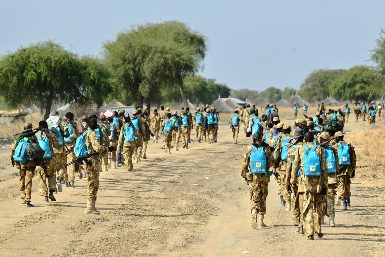More than 2 million children displaced in S. Sudan: UNICEF
July 8, 2017 (JUBA) – More than two thousand children have been killed or injured, and many more have witnessed horrific violence due to the raging civil war in South Sudan, the United Nations Children Fund (UNICEF), said.

UNICEF released its report ahead of South Sudan’s sixth Independence Day.
According to UNICEF, more than two million children have been forced from their homes to escape the fighting in a country with the highest percentage of children out of school, in the world.
South Sudan’s war, sparked when President Salva Kiir accused his former deputy Riek Machar of plotting a coup in 2013, has been marked by numerous atrocities against civilians despite the presence of thousands of UN peacekeeping troops.
Civil war has raged on for the past three years with such viciousness that parts of the country are bereft of food and a third of the population has fled their homes.
Around 1.8 million South Sudanese have fled the country, making it the fastest-growing refugee crisis in the world.
With 2.2 million children out of school, South Sudan reportedly has the highest proportion of school children not in classrooms, with 70% of children not receiving any education. In addition, one-third of all schools are believed to have been attacked by armed groups.
An estimated 1.1 million children in the country are acutely malnourished, according to UNICEF. In addition, children lack clean water, which has led to the ongoing outbreak of cholera – the longest and most widespread in the country’s history – with 10,000 cases reported, the majority children.
UNICEF, other U.N agencies and non-UN partners, are reportedly working to provide safe drinking water and food to children, as well as to reunite them with their families and to support some stability in their lives through schooling.
(ST)
